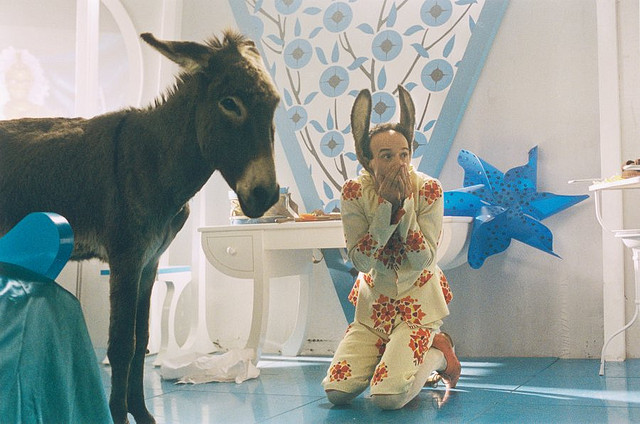Study Shows “Pinocchio” Won’t Help Your Kid Handle The Truth
Or whales.

Of all the moralistic fables told to kids to encourage honesty, “Pinocchio” is one of the weirdest, and possibly the least effective. A team of child psychologists recently studied the influence classic tales have on the honesty of children between 3-7 years old, and found that stories need a very specific touch to teach the merits of truth.
For the study published earlier this week, the psychologists played a game that required participants to guess the identity of a toy based on the sound it made. At some point during the game the researchers would leave the room, giving the child the opportunity to cheat by peeking. When the researchers returned, they would read aloud either “Pinocchio,” “The Boy Who Cried Wolf,” or “George Washington and The Cherry Tree,” to see if participants who had peeked would admit to it.
According to io9, before conducting the study the psychologists predicted that each of the fables would influence children to behave honestly:
Specifically, we predicted that cheaters who heard “The Boy Who Cried Wolf” would be more inclined than cheaters who heard the other stories to confess their cheating because of the fatal consequence associated with lying in this story. However, we also predicted that this effect would be seen only in older children, who might be better able to appreciate the finality of death than younger children would…. We expected that children who heard “Pinocchio” would also become more inclined than other children to confess their cheating because of the immediate physical consequence that Pinocchio suffered when he lied. Public humiliation should be readily relatable, even to young children. Thus, we predicted that this story would be equally effective in promoting honesty in children of all ages. We also hypothesized that “George Washington and the Cherry Tree” would be effective in promoting honesty at any age because it illustrates the benefits of honesty in a concrete manner.
But contrary to the team’s predictions, the only fable that influenced participants to confess was “George Washington and the Cherry Tree.” The researchers hypothesized that the story had a more productive impact on the children because it emphasized the positive consequences of honesty, rather than the negative consequences of lying. To test their theory, they even experimented with a re-written version of the story in which George Washington was punished for fibbing by having his axe taken away, and the new ending also proved ineffective.
Based on their results, the psychologists posit that emphasizing the “positive consequences of honesty” is the best way for parents to encourage honesty. Which is fine, sure, but if the researchers are wrong about this, they should expect all their sheep to be eaten by wolves. Or a whale.
(via io9, image via JWfarmer10)
Are you following The Mary Sue on Twitter, Facebook, Tumblr, Instagram, & Google +?
- Study shows scare tactics are ineffective in education
- Frankenweenie killed Pinocchio
- Paleontologists announce discovery of “Pinocchio Rex”
Have a tip we should know? tips@themarysue.com